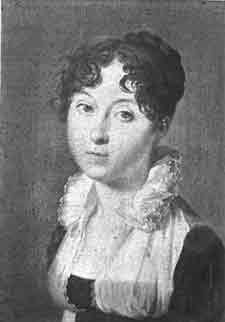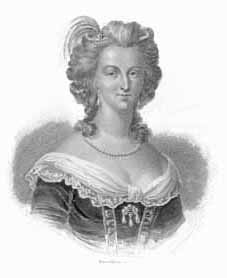
Countess Walsh de Serrant
To improve his daily fare, Jean-Gabriel knows how to play the role of an intermediary and make use of its contacts with the Creoles of Saint Domingue and the people of Brittany. He speculates and gambles, which explains his reverses of fortune. During his prosperous periods he shares his affluence with friends like Chateaubriand. Jean-Gabriel is present at all society gatherings, the Countess Walsh de Serrant receives him. It is there that they read the works of his friend Fontanes, he sings, jokes and blusters at dinner parties. He is listened to, as he is generally well informed and has more than one string to his bow. His knowledge of the English language allows him to work for several London newspapers. He translates for the Foreign Office, from which he will receive a pension for "secret services" rendered! His contacts are such that he can intervene on behalf of French émigrés writers and obtain for them subsidies from the Literary Fund. During this time his brother Marie-Etienne is a prisoner on English pontoons... But in that case, he does not intervene as their opinions are too dissimilar.
On the 13th. of July 1799 Jean-Gabriel weds Anne Andoe (the daughter of an Irish distiller established in Bordeaux). Fontanes writes of her: "She seems to gather what is best in France and in England". She manages to turn him into a "changed and tender" man, in spite of all this,
On the 13th. of July 1799 Jean-Gabriel weds Anne Andoe (the daughter of an Irish distiller established in Bordeaux). Fontanes writes of her: "She seems to gather what is best in France and in England". She manages to turn him into a "changed and tender" man, in spite of all this,
